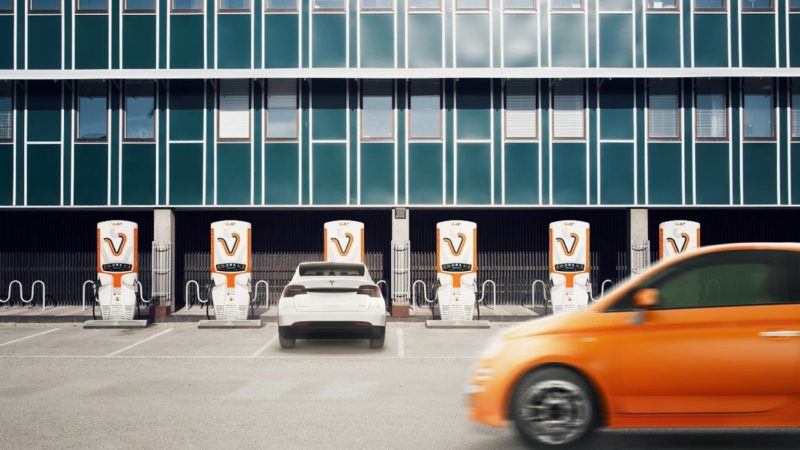Brisbane-based electric-vehicle charger company Tritium will partner with Stäubli Electrical Connectors and SSA Marine to install 33 of its DC High Power Chargers at the Port of Long Beach, in California.
In what is being hailed as the world’s largest automated vehicle charging program, the chargers will be used to power SSA Marine’s new fleet of electric-driver terminal tractors at the second-busiest container port in the United States (after the Port of Los Angeles).
Tritium will supply and install its Veefil-PK 175kW DC High Power Chargers (HPCs) which will be equipped with Stäubli’s Quick Charging Connector (QCC) to enable fast and automated charging for the port’s fleet of electric-drive terminal tractors – which are being supplied by TransPower.
“The rollout of both the vehicles and the chargers at the Port of Long Beach will demonstrate the ability to reduce emissions while providing reliable and clean solutions to the port,” said Jeff Wolfe, President, Americas, Tritium.
“The move towards the electrification of transportation is inevitable. SSA Marine is taking the initiative by seeing not just the environmental benefits of electrification, but the benefits to the bottom line as it reduces its reliance on diesel fuel.
“The key to ports operating at their optimum is efficiency, and the solution Tritium and Stäubli will provide to SSA Marine ensures the terminal tractors charge automatically, at the fastest speed possible.”
Tritium’s Veefil-PK chargers will be able to automatically and simultaneouslycharge all 33 terminal tractors at once, thanks in part to Stäubli’s QCC enabling the automatic connection to a receptacle on each vehicle, creating what Tritium is calling a “zero-touch operating environment”.
Stäubli’s QCC is touch-protected on both sides of the connector, meaning that it can transmit high levels of power safely and quickly.
With delivery of the 33 terminal tractors expected to begin later this year through to October of 2020, the electrification of the Port of Long Beach’s fleet of vehicles will help to improve health standards for staff as well as nearby residents by reducing the number of diesel-fuelled vehicles.
The news came only a week after Tritium’s co-founder and CEO David Finn revealed that the company had a current sales pipeline of at least $200 million and 3,000 systems.
Finn, speaking to Business News Australia, claimed that the company now accounts for a fifth of all direct-current (DC) fast-chargers for electric vehicles (EVs) sold in Western countries.
Update: This project was supported by the “California Climate Investments” (CCI) program.
Joshua S. Hill is a Melbourne-based journalist who has been writing about climate change, clean technology, and electric vehicles for over 15 years. He has been reporting on electric vehicles and clean technologies for Renew Economy and The Driven since 2012. His preferred mode of transport is his feet.


